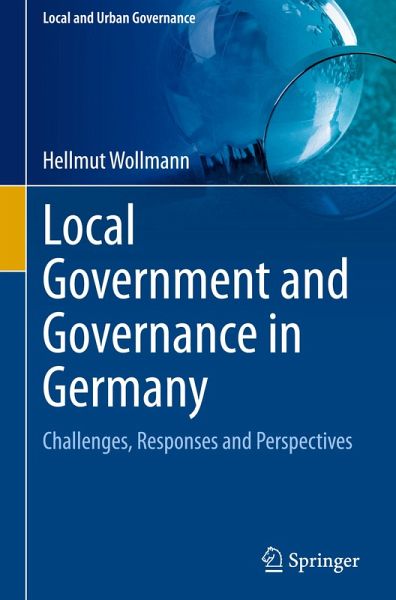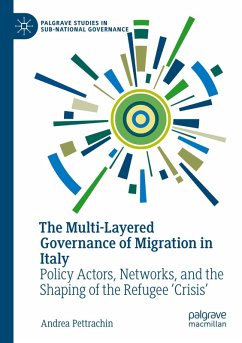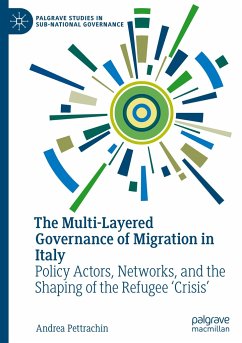
Local Government and Governance in Germany
Challenges, Responses and Perspectives
Versandkostenfrei!
Versandfertig in 6-10 Tagen
106,99 €
inkl. MwSt.
Weitere Ausgaben:

PAYBACK Punkte
53 °P sammeln!
The book aims at outlining key political, functional, administrative and financial features of Germany's local government system and at placing them in a (European) comparative perspective. In pursuing an "institutionalist" approach it focuses on discussing whether, how and why the position and activities of local government in the intergovernmental ("multi-level") setting have changed vis-à-vis multiple challenges and crises. Among the latter tasks such as coping with the energy crisis, the influx of asylum seekers and refugees, the digitization of local administration and the Covid19 pandem...
The book aims at outlining key political, functional, administrative and financial features of Germany's local government system and at placing them in a (European) comparative perspective. In pursuing an "institutionalist" approach it focuses on discussing whether, how and why the position and activities of local government in the intergovernmental ("multi-level") setting have changed vis-à-vis multiple challenges and crises. Among the latter tasks such as coping with the energy crisis, the influx of asylum seekers and refugees, the digitization of local administration and the Covid19 pandemic loom large.
Ranking among the functionally and politically strongest among European countries Germany's local government plays an important role in the German federal system and beyond in the European Union. Over the years it has proved a remarkable problem solving and innovative capacity. Hence, the German case may attract the attention of a European and international audience interested in local government and governance and practices.
Ranking among the functionally and politically strongest among European countries Germany's local government plays an important role in the German federal system and beyond in the European Union. Over the years it has proved a remarkable problem solving and innovative capacity. Hence, the German case may attract the attention of a European and international audience interested in local government and governance and practices.












